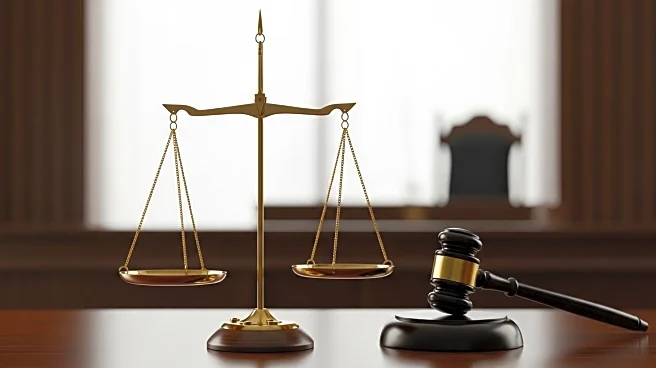What's Happening?
UFC Hall of Famer B.J. Penn has been ordered by Judge Peter Kubota to undergo a mental health evaluation following multiple arrests in 2025. The court has suspended criminal proceedings against Penn until his mental fitness is assessed. The evaluation will determine Penn's capacity to understand the charges against him and assist in his defense. This decision comes after Penn's mother, Lorraine Shin, accused him of psychological abuse and obtained a restraining order. Penn has been arrested five times this year, including for violating the restraining order. The court has mandated that a mental health professional submit an opinion on Penn's fitness to proceed, even if he refuses the evaluation.
Why It's Important?
The court's decision to pause criminal proceedings and require a mental health evaluation highlights the intersection of mental health and legal accountability. This case underscores the importance of assessing mental fitness in legal contexts, particularly when allegations involve psychological abuse. The outcome of Penn's evaluation could influence how similar cases are handled, potentially setting a precedent for incorporating mental health assessments in criminal proceedings. The situation also raises questions about the support systems available for individuals facing mental health challenges within the legal system.
What's Next?
Penn is scheduled to return to court on January 9, when the judge will decide the next steps based on the mental health evaluation. If Penn is found unfit for trial, recommendations may include detention in a treatment facility. The court's decision could impact Penn's legal strategy and future proceedings. Stakeholders, including legal experts and mental health advocates, may weigh in on the implications of this case for broader legal practices.
Beyond the Headlines
This case brings attention to the ethical considerations of balancing legal accountability with mental health support. It may prompt discussions on the adequacy of mental health resources in the legal system and the role of mental health evaluations in ensuring fair trials. The case also highlights the potential stigma associated with mental health issues in high-profile legal cases.











